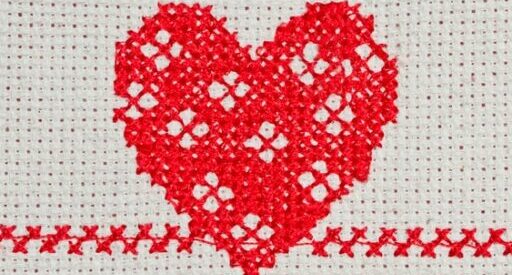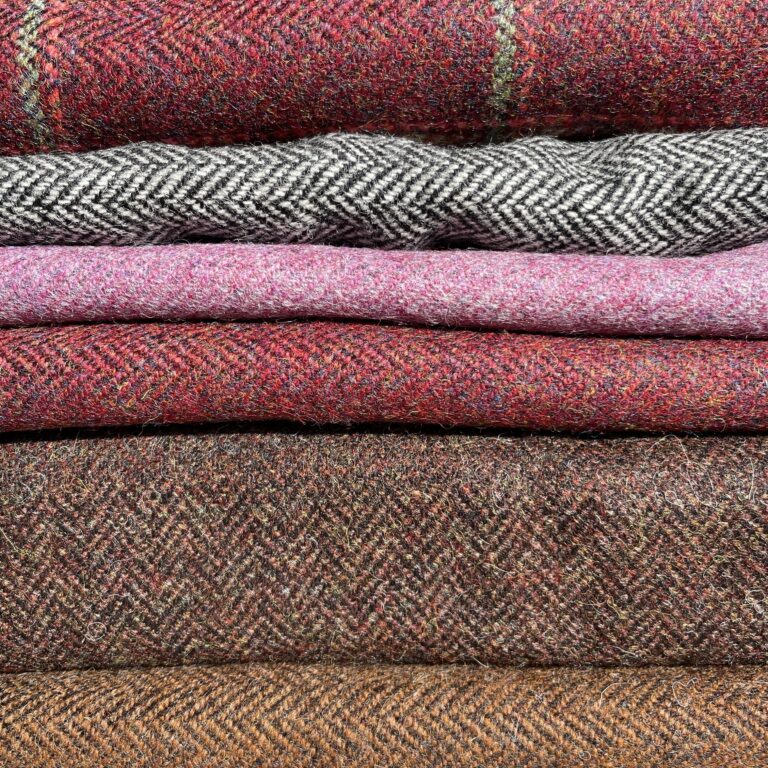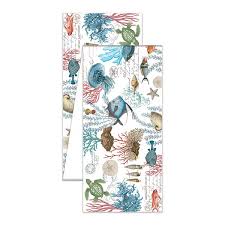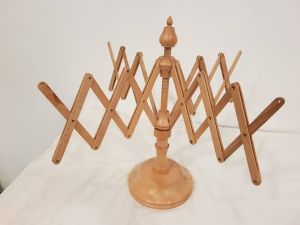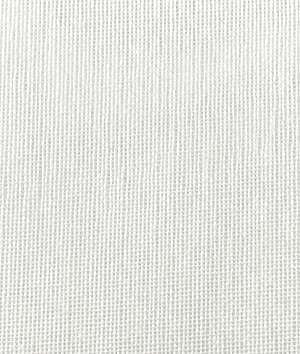Sequin Fabric: History, Properties, Uses, Care, Where to Buy
Table of Contents
Introduction to Sequin Fabric
Sequin fabric is a material that has plastic or metal structured bits sewn into the weave. Sequence fabric is another common name for it. However, only the term “sequin” is correct. The material comes in a variety of styles and colors.
No matter what you choose to incorporate your sequins into—a pair of cigarette pants, a smart jacket, or a boxy top—they give off an innovative and fashionable vibe. These dazzling bits draw attention to certain portions of the pattern and make the fabric look beautiful.
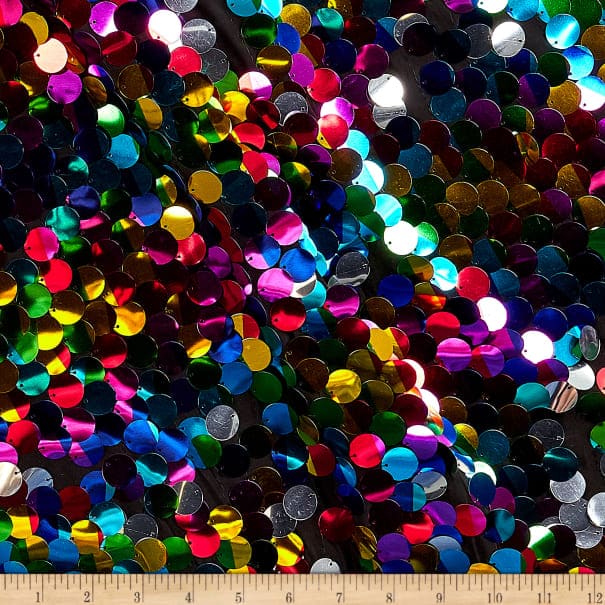
| Content | Pros | Cons |
|---|---|---|
| Introduction to Sequin Fabric | – Gives a fresh and fashionable vibe to garments – Adds innovation and beauty to fabric patterns | – Can be scratchy and irritating to the skin – Not stretchable and has an opaque back |
| History of Sequin Fabric | – Rich historical background – Traced back to ancient times – Popularized in the late 1960s | – Debate over the origins of the term “sequin” |
| Properties of Sequin Fabric | – Medium breathable fabric – Rough texture – Versatile in colors and styles | – Can be scratchy and irritating to the skin – Not stretchable and has an opaque back |
| How is Sequin Fabric Made? | – Made of plastic or metal sequins sewn onto fabric – Can be sewn, stitched, or hand-woven | – Sequins may fall off if not sewn securely |
| Where is Sequin Fabric Made? | – Mostly produced in Asian countries, especially China | – Raw materials need to be shipped to China for manufacturing |
| Common uses of Sequin Fabric | – Used in daily wear and traditional Indian dressings – Great for home decor, sewing projects, and dyeing | – Can be scratchy and irritating to the skin |
| How to care for Sequin Fabric? | – Can be hand washed or machine washed on a gentle cycle – Should avoid using fabric softeners and bleach | – Sequins may melt or disintegrate at low temperatures – Should not be put in a dryer |
What is the History of Sequin Fabric?
Coins have been fastened to clothes for generations to keep the wealth of the possessor close and secure. Nomadic societies and funeral clothes were especially fond of it in ancient times.
There is a lot of debate over the origins of “sequin.” However, it can be traced back to the Arabic term Sikka (coin). The word “sequin” was first used in France in the late 1600s.
Tutankhamun’s tomb was unearthed by archaeologists in 1922, exposing beautiful clothing adorned with gold discs. As word of the discovery of King Tut’s tomb spread, Western fashion rapidly echoed the tomb’s magnificent treasures.
Many of the gowns worn by flappers had dozens or even hundreds of sequins made of metal. According to manufacturers, gelatin dyed with lead paint was used to generate lightweight sequins by the 1930s.
Despite their beautiful appearance, the spangles were unsuitable for usage since they melted and disintegrated at low temperatures. An Eastman Kodak chemist, Herbert Lieberman, invented acetate sequins in almost the same decade. He later moved on to specialize in the design and construction of extravagant dance and band costumes.
Sequins first gained widespread popularity in the late 1960s, when they were worn by popular bands such as The Supremes. Sequins maintained their prominence in the fashion industry throughout the 1970s and into the early 1980s.
Properties of Sequin Fabric
- It is a medium breathable fabric.
- It has a rough texture.
- It can be scratchy and irritating to the skin at times.
- It isn’t stretchable and has an opaque back
How is Sequin Fabric Made?
The sequins are mostly made of plastic and metal. They can be sewn, stitched, or hand-woven on fabrics. Strings of sequins can be attached to the fabric in a variety of ways, but the most common is to sew them to the cloth in a straight line so that they don’t dangle and are less prone to falling off.
Colors and forms vary widely, and some have numerous facets for light reflecting the light. If sequins are to hang, they can either be stitched in one spot or flat to the fabric.
Where is Sequin Fabric Made?
Most sequin fabric is produced in Asian nations, including China, which is responsible for producing the fabric. Most raw commodities are shipped to China to be manufactured into finished products because of China’s dominant position as the world’s leader in the textile market.
Common uses of Sequin Fabric
Sequin fabric is used for various garments along with different products.
Daily wear
Using this fabric, you may give your skirts and dresses a fresh appearance. The fabric is also used in traditional Indian dressings.
Home Décor
The fabric is a fantastic choice for various coverings, including window coverings, bed covers, pillowcases, wall art, etc.
Sewing with Sequin Fabric
Sequin fabric is a multipurpose fabric that requires special attention when sewn. The smooth cloth is simple to cut with a pair of fabric scissors and is normally sewn onto fine or sheer textiles such as mesh to give them some solidity.
If one wants to get ideal results with their sewing, one should be sure to employ the appropriate sewing essentials, sewing notions, and supplies.
When sewing patterns and designs on the fabric by hand, ensure your stitches are small. The sewing threads used can be all-purpose polyester or cotton, depending on the composition of the fabric. You should use the best sewing machines available, like the Brother SE600 for the best results.
Sequin fabric can be sewn in various ways, so long as you keep these minor tips and tricks in mind.
Dyeing with Sequin Fabric
It is possible to color sequin materials, as unlikely as it may sound. The technique can assist both designers and customers with unique likes and preferences.
The fabric can be dyed depending on the composition of the fabric. If made using cotton or other synthetic fibers, the Rit All-Purpose Liquid Dye can be used as the best fabric dye available.
How to care for Sequin Fabric?
Fabrics made of sequin aren’t as difficult to maintain as you might think; they can be cleaned and ironed without too much trouble.
Washing and drying
- Use cold water to wash the fabric.
- Handwashing is always the safest and most effective cleaning method.
- If machine-washing the fabric set the machine to a gentle cycle
- You should avoid using fabric softeners.
- Avoid the use of bleach too.
- The fabric can be dried by air-drying it on a flat surface or by hanging it to dry.
- Do not put your sequin fabrics in a dryer since the glue or the sequins could melt.
Ironing
- Using a shark steam iron, press the fabric on the wrong side.
- Use a low heat setting and a press cloth
- Make use of pins to keep the fabric in place.
Where to buy Sequin Fabric?
Sequin fabric can be acquired from fabric and garment retailers. Clients can also acquire sequin fabric from online retailers and websites like Fabric.com and Amazon, which have the best sequin fabrics available, like the unique Rainbow Paillette Sequins Multi or the stunning Glitz Sequin Mesh.
It can be sold in several ways depending on the seller;
- By yard
- By Inches
- Can be cut to order
Sequin fabric is a unique, colorful, shiny option that is often quite a show-stopper. Sequined fabric is often made with a mesh backing or base, though many other options of fabrics for the base can be used, and usually features thousands of sequins throughout the fabric.
Sequins can range in size. They can be tiny or they can be quite large. Some sequins are even reversible and will change color and appearance when they are rubbed from one direction to the next. Sequin fabric is quite versatile and can be used for a variety of projects. Make something to wear, or make something stunning for your home.
Best Sequin Fabrics
Here are our sequin fabric reviews.
1. Rainbow Pailette Sequins Multi
[azonpress template=”box” asin=”B07KXTZLYG”]This fabric is a part of a line called Sequin Mesh, which features over fifteen different fabrics with different kinds of sequins. This fabric is quite unique, even to the line, because of the large size of the multi-colored sequins. The fabric is quite sheer and the sequins are sewn vertically onto a black mesh back.
- Fabric should be hand washed with cold water and mild soap or drycleaned
- Features 5% stretch across the grain
- Fabric is heavyweight and is made from 100% polyester
2. Ben Textiles Sequins Stretch Velvet
[azonpress template=”box” asin=”B09TJKMF5P”]This fabric, as the name implies, features velvet as the base, with sequins throughout. The fabric features 20% stretch across the grain and 10% vertical stretch, which makes it great for costumes, form-fitting garments, special occasion apparel, and more. When sewing with this fabric, it will likely work best if a lining fabric is also used.
- This fabric should be dry cleaned
- Fabric is medium to heavyweight and is available in 54″ widths
- Fabric is made from a blend of 90% polyester and 10% spandex
3. Glitz Sequin Mesh
[azonpress template=”box” asin=”B09CPDB3FW”]This gorgeous and glitzy fabric is made from a polyester mesh net backing with sequins sewn on throughout the fabric. This fabric does have 10% vertical stretch, which makes it a great choice for many different items. This fabric can be used to create costumes, dance wear, apparel items for special occasions, and more.
- Fabric should be hand-washed or dry cleaned
- This fabric is medium-weight and is made from 100% polyester
- Available in 52″ widths and this line comes in over ten different colors
4. Starlight Mermaid Sequins
[azonpress template=”box” asin=”B07FCPW5Q7″]This incredible fabric is two-toned and is reversible. Running a hand up and down the fabric will change the direction the sequins face, and change their look as well. The front side of this fabric’s sequins are iridescent while the back is white. While this fabric is perhaps best known for the pillows that can be made with it, it can also be used to sew costumes, dance wear, and more.
- Wash with lukewarm water to clean- do not iron
- This fabric is very heavyweight and is made from 100% polyester
- Available in 52″ widths
5. Starlight Sequined Mesh
Think you know sequins? This unique line of fabric comes in twenty different options that might change anyone’s mind. This particular fabric features lace and sequins, as well as embroidery and beads, for a very unique look. The fabric also has a scalloped border to add extra elegance.
- This fabric has a slight amount of stretch across the grain
- Machine wash on gentle and drip dry after
- This fabric is very lightweight and is 100% polyester
Sequin Fabric Buying Guide
Whether you’re looking for a fun costume, that special dance wear item, a formal dress that is going to wow, or you’d like to add a touch of elegance or shine to your home’s décor, sequin fabric is a great option. Sequined fabric is actually quite versatile and can be used for a ton of different projects. There are many options for sequined fabric. Sequins come in all different sizes, and colors, and with different backings.
Laundering Sequin Fabric
Sequin fabric can’t usually just be tossed in the washer or thrown in the dryer. You should be aware that sequin fabric does require some special care when it comes to washing. While some fabrics can be carefully hand-washed with mild soap and hung to dry, others must be dry-cleaned. There are different options for different lines of fabric, so if you’re looking for something that can be laundered at home, be sure to check the fabric’s care instructions before you purchase.
Cost of Sequin Fabric
Sequin fabric does range in price. If you’re looking for a faux-sequin fabric that just looks like sequins, but doesn’t actually contain them, the fabric can cost far less than ten dollars per yard. For actual sequin fabric, there are lines that cost around fifteen dollars per yard but can range up to twenty or twenty-five dollars per yard. The type, color, size, and backing of the fabric might determine the price, but it also might determine which fabric is best for you and your project.
Recommended Reading:
- Chapter 1: The 7 Sewing Essentials for Beginners
- Chapter 2: The Beginner’s Guide to Sewing Machines
- Chapter 3: The Ultimate Guide to Setting up your Sewing Room
- Chapter 4: Everything You Need To Know About Sewing
- Chapter 5: Sewing Fabric 101: A Virtual Tour of the Fabric Store
Conclusion
Sequin fabric has been around since the early nineteenth century and has played an important part in how fabric is used for garments and clothing in modern times.
Sources
